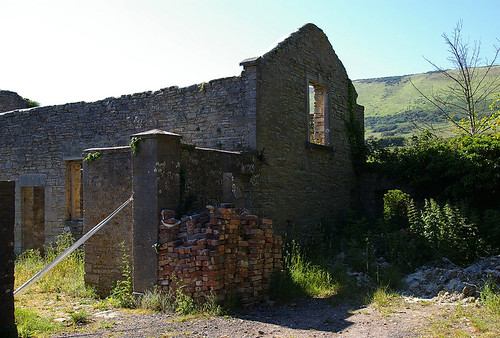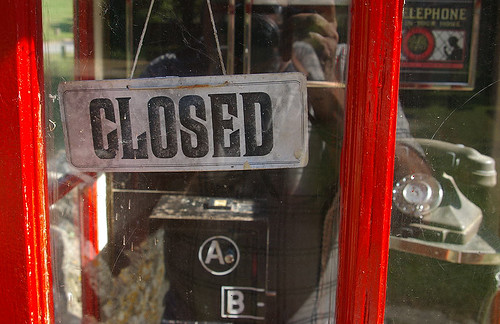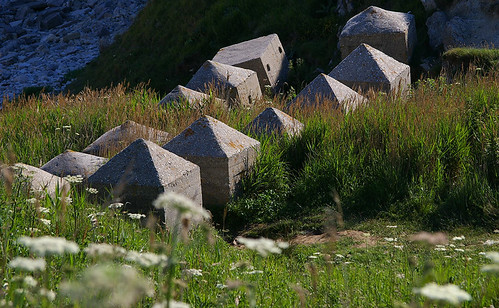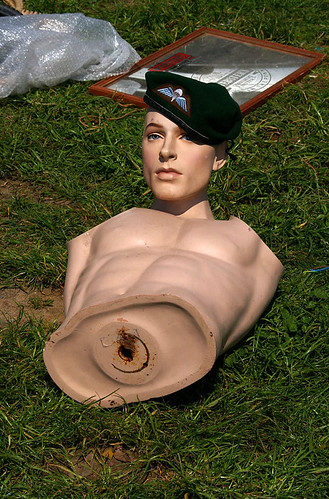Something Todd Swift said pointed me to an article in the Guardian about the lack of public intellectuals in Britain, written by Agnès Poirier, a French journalist working in London. It’s worth reading just for the culture-clash exhibited in the comments.
I noticed that the unspoken assumption, from both sides of the argument, was inevitably that an intellectual is a philosopher, a cultural theorist, a littérateur and not, for example, someone like Richard Dawkins.* So I started digging around for this quote from C. P. Snow’s The Two Cultures:
I remember G. H. Hardy once remarking to me in mild puzzlement, some time in the 1930s, “Have you noticed how the word “intellectual” is used nowadays? There seems to be a new definition which certainly doesn’t include Rutherford or Eddington or Dirac or Adrian or me? It does seem rather odd, don’t y’know.”
The point being, of course, that Hardy was a mathematician, Rutherford (no relation), Eddington and Dirac were physicists and Adrian was, Wikipedia informs me, a physiologist. Three of them won Nobel prizes. I remember being very struck by that quote when I first read it, and I still think Snow’s basic point about the wilful scientific ignorance of those in the humanities is a good one, even if some of the other things he says in the essay don’t stand up very well. Indeed Wikipedia led me to an essay by Roger Kimball titled “The two cultures” today, published in 1994 in the New Criterion. Kimball does an excellent and largely deserved demolition job on Snow’s essay, but in the process demonstrates exactly the depressing indifference to science that Snow was complaining about.
Snow’s argument operates by erasing or ignoring certain fundamental distinctions. He goes to a literary party, discovers that no one (except himself) can explain the second law of thermodynamics, and then concludes triumphantly: “yet I was asking something which is about the equivalent of Have you read a work of Shakespeare’s?” But, as Leavis notes, “there is no scientific equivalent of that question; equations between orders so disparate are meaningless.” The second law of thermodynamics is a piece of specialized knowledge, useful or irrelevant depending on the job to be done; the works of Shakespeare provide a window into the soul of humanity: to read them is tantamount to acquiring self-knowledge. Snow seems blind to this distinction.
“A piece of specialized knowledge, useful or irrelevant depending on the job to be done”. It just makes me want to cry. An insight into the fundamental workings of the universe reduced to a tool, a mathematical spanner, something of no possible interest to anyone who doesn’t need it to do a job. An indirect and second-hand insight into ‘the soul of humanity’ meanwhile is of such obvious value that it apparently goes without saying.
Such arrogance. Not just the intellectual arrogance that is willing to dismiss physics as just a tool for getting jobs done, but the arrogance to assume that ‘self-knowledge’ is of more value than the attempt to understand everything that exists. This isn’t an argument, it’s just an assertion of self-importance.
And yes, I do know that scientists are sometimes just as arrogantly dismissive of the value of the humanities. For the sake of even-handedness, and because it amuses me, here’s a quote from Dirac: “In science one tries to tell people, in such a way as to be understood by everyone, something that no one ever knew before. But in poetry, it’s the exact opposite.”




